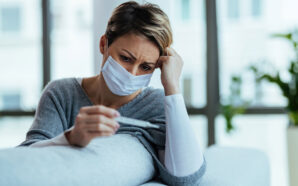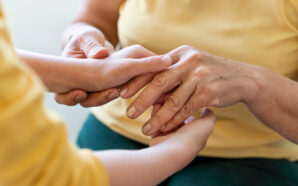BPT
Shouldn’t this be the season for walks in the snow, gift-shopping, family gatherings, ho-ho-ho and mistletoe? So why are you still sneezing?
Granted, certain times of year are more allergen-filled than others, but the truth is, allergy symptoms can hit you in any season – even the holiday season! What’s more, the holidays bring unique triggers such as mold from evergreens inside your home, dust from long-stored decorations and food allergens in holiday foods.
“When you top off holiday allergens with the hectic pace and stress this time of year can bring, you have a recipe for a very sneeze-filled season,” says Dr. Stephen Tilles, president of the American College of Allergy, Asthma and Immunology (ACAAI). “No one wants to be a Scrooge during the holidays. With some planning and precautions, it’s possible to reduce your exposure to allergens and have a more pleasant season.”
The ACAAI offers these tips to help navigate the many seasonal triggers you may face during the holidays:
Dodging decoration disaster
Decorations are meant to make the holiday season bright, but holiday adornments can harbor allergens. Mold from Christmas trees can trigger sneezing and wheezing. Aromas from scented candles can cause congestion and affect breathing. Decorations stored in attics or garages from year to year can be a home for sneeze-inducing dust mites.
Artificial trees, wreaths and garlands can be an alternative to live decorations that host mold. Remove dusty decorations from storage and clean them outside before bringing them indoors. At the end of the season, store them in sealed containers to keep out dust. Avoid using artificial scents like candles and room sprays that can trigger symptoms for people with allergies and asthma. Instead, fill your home with natural aromas by baking holiday goodies or setting out a dish of unwrapped peppermints.
Safer holiday feasting
Seasonal foods are as much a part of the holiday season as tinsel and twinkling lights. However, dining as a guest in someone’s home can be a problem for people with food allergies.
If you have food allergies, alert your host ahead of time. Offer to bring a dish or two that you know will be safe for you to eat. Carefully read labels on prepared foods to ensure they haven’t been made with trigger ingredients or in a facility where they might have come in contact with allergens. If you’re hosting someone with food allergies, be sure to prepare some allergen-free dishes and clearly label those that have common trigger ingredients like shellfish, tree nuts and peanuts.
Avoid travel trip ups
Whether you’re visiting distant relatives or sharing a holiday meal with nearby neighbors, traveling during the holidays can mean exposure to allergens. Your neighbor’s beloved dog or cat may trigger pet allergies, no matter how well she cleans the house. The sheets on your hotel room bed may be washed in a detergent that causes itching, and the pillows may expose you to dust mites.
Be sure to pack your allergy medication before traveling. If you’re hosting, check with guests before they arrive to see what their allergy triggers are and get their guidance on what you can do to mitigate their exposure to allergens in your home.
Finally, don’t forget that it’s also flu season and flu can trigger or make existing allergy and asthma worse. Get a flu shot, and be sure to wash your hands regularly throughout the holidays. If you do experience an allergy or asthma attack, see your board-certified allergist. You can get more information about allergies and asthma, and find an allergist near you at <AllergyAndAsthmaRelief.org>.






